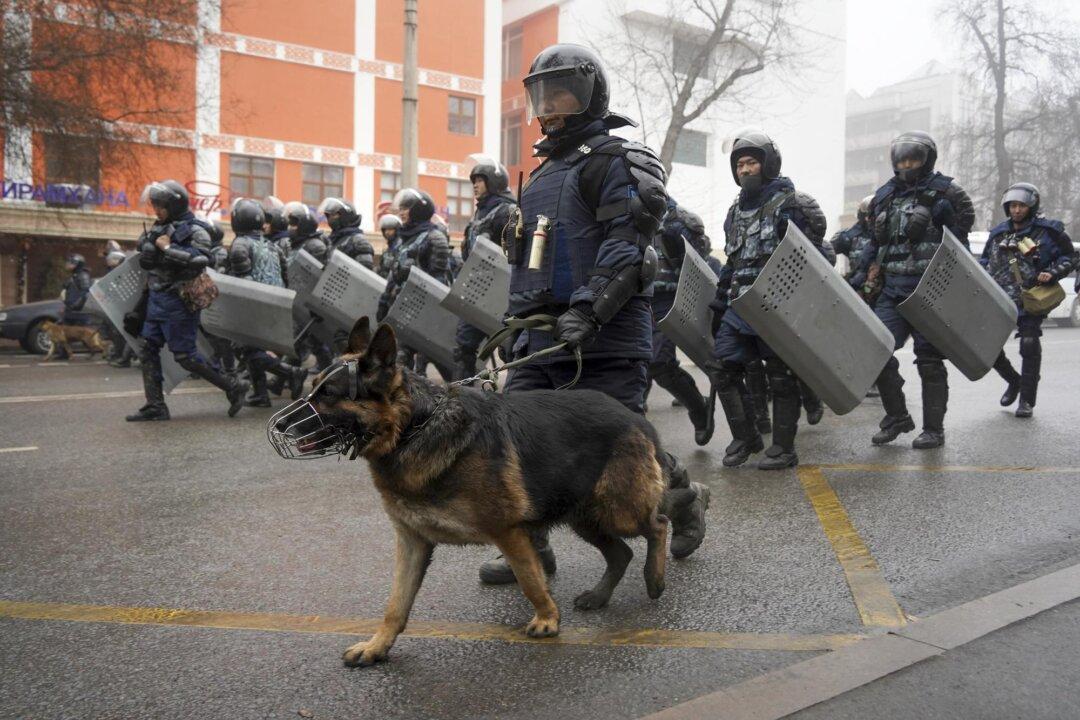Kazakh President Kassym-Jomart Tokayev said in an address on national television that he had told security forces they could fire without warning on protestors, Kazakh news agency Tengrinews reported.
“The militants have not laid down their arms, they continue to commit crimes or are preparing for them,” Tokayev said in a televised address. “Whoever does not surrender will be destroyed. I have given the order to law enforcement agencies and the army to shoot to kill, without warning.”




